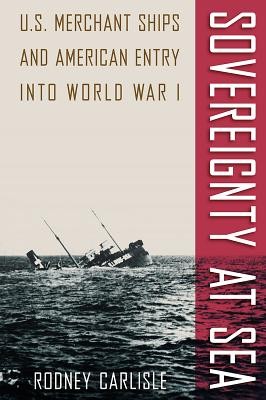
- We will send in 10–14 business days.
- Author: Rodney Carlisle
- Publisher: University of Florida Press
- ISBN-10: 081303762X
- ISBN-13: 9780813037622
- Format: 15.2 x 22.9 x 1.5 cm, minkšti viršeliai
- Language: English
- SAVE -10% with code: EXTRA
Reviews
Description
While numerous studies have examined Woodrow Wilson's policy of neutrality prior to U.S. entry into World War I, none has focused on the actual merchant ship losses that created the final casus belli. This work focuses on what the president knew and when he knew it concerning the loss of ten ships between February 3 and April 4, 1917. By looking at the specifics, Rodney Carlisle offers new explanations for the reasons that led the president, the cabinet, the public, and Congress to decide for war.
Sovereignty at Sea not only adds much to our understanding of maritime and diplomatic history during the First World War period but also speaks to contemporary concerns with issues surrounding the U.S. justification for wars.EXTRA 10 % discount with code: EXTRA
The promotion ends in 21d.22:15:37
The discount code is valid when purchasing from 10 €. Discounts do not stack.
- Author: Rodney Carlisle
- Publisher: University of Florida Press
- ISBN-10: 081303762X
- ISBN-13: 9780813037622
- Format: 15.2 x 22.9 x 1.5 cm, minkšti viršeliai
- Language: English English
While numerous studies have examined Woodrow Wilson's policy of neutrality prior to U.S. entry into World War I, none has focused on the actual merchant ship losses that created the final casus belli. This work focuses on what the president knew and when he knew it concerning the loss of ten ships between February 3 and April 4, 1917. By looking at the specifics, Rodney Carlisle offers new explanations for the reasons that led the president, the cabinet, the public, and Congress to decide for war.
Sovereignty at Sea not only adds much to our understanding of maritime and diplomatic history during the First World War period but also speaks to contemporary concerns with issues surrounding the U.S. justification for wars.

Reviews